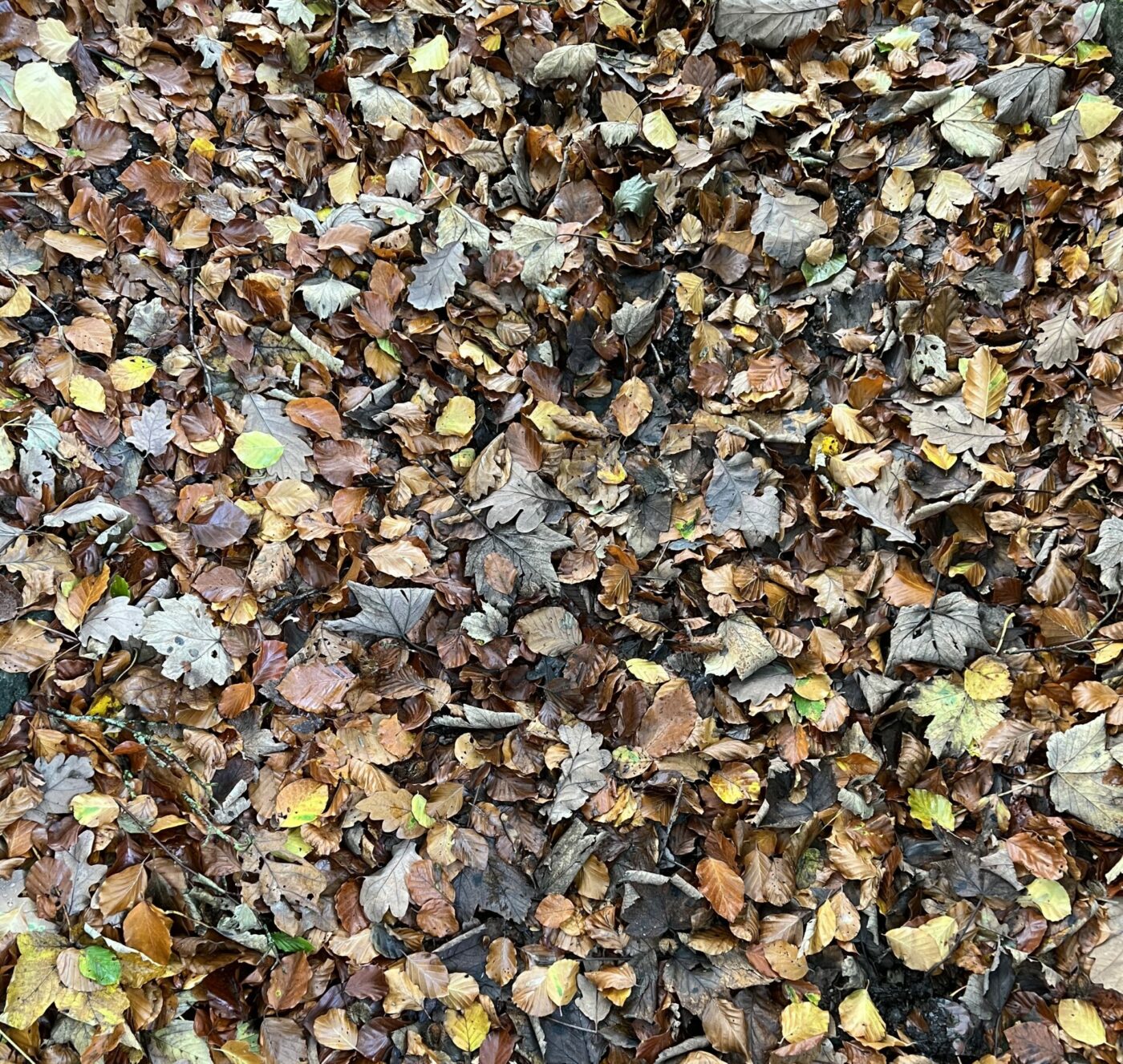One of the pieces of advice the gardening world has got wrong over the years is about picking up fallen leaves from around plants. While it makes sense to sweep autumn leaves from paths to stop slipping and to rake it off of lawns to avoid shading damage to the grass, it is incorrect to remove it from planting areas.
The recommendation goes: you should remove fallen leaves from around plants to reduce slug and snails and to avoid shading the plants. Both of these pieces of advice are counterintuitive and I’ll explain why.
1) Fallen leaves are the wild way
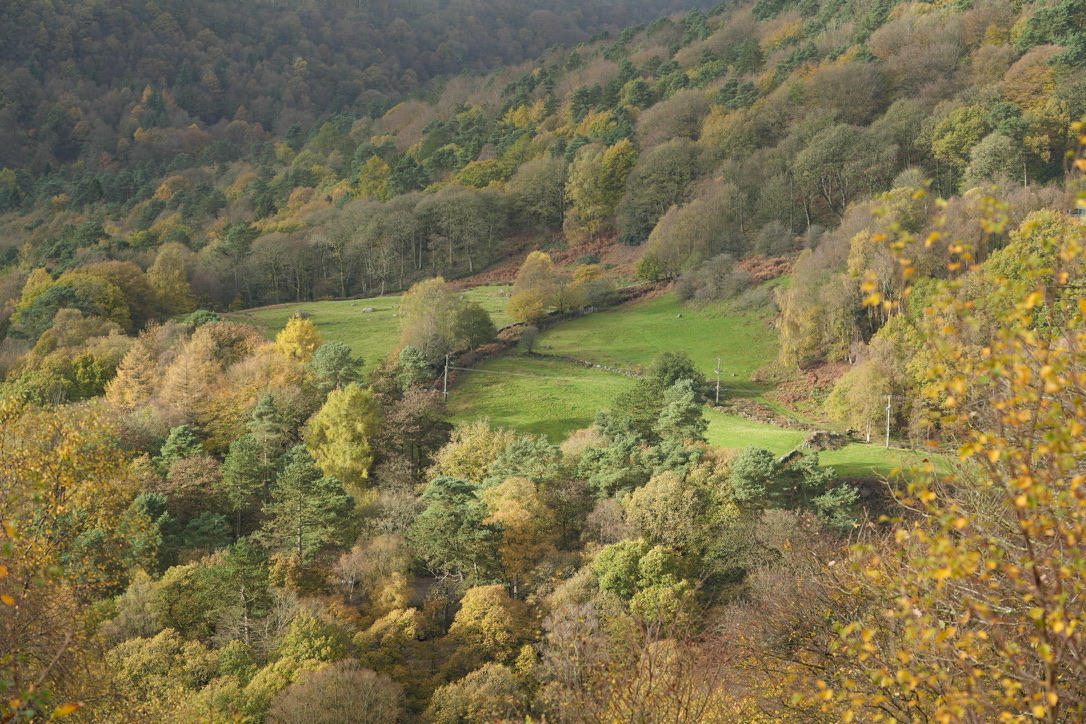
As I explain regularly in my Wild Way Newsletter, if we look to nature, it will tell us everything we need to know about growing in gardens. In the wild, leaves fall and this forms the basis of most organic matter that powers growth the following year. The leaves decompose thanks to various organisms in the ecosystem, which includes slugs and snails, as well fungi, bacteria and other microorganisms. People often ask me “what is the point of slugs?” and the answer is easy, one of their important roles is to break down fallen leaves, recycling it as nutrient rich humus that plants use for growth in the future. The other is as food for beneficial animals.
2) Fallen leaves are habitat for slug and snail predators
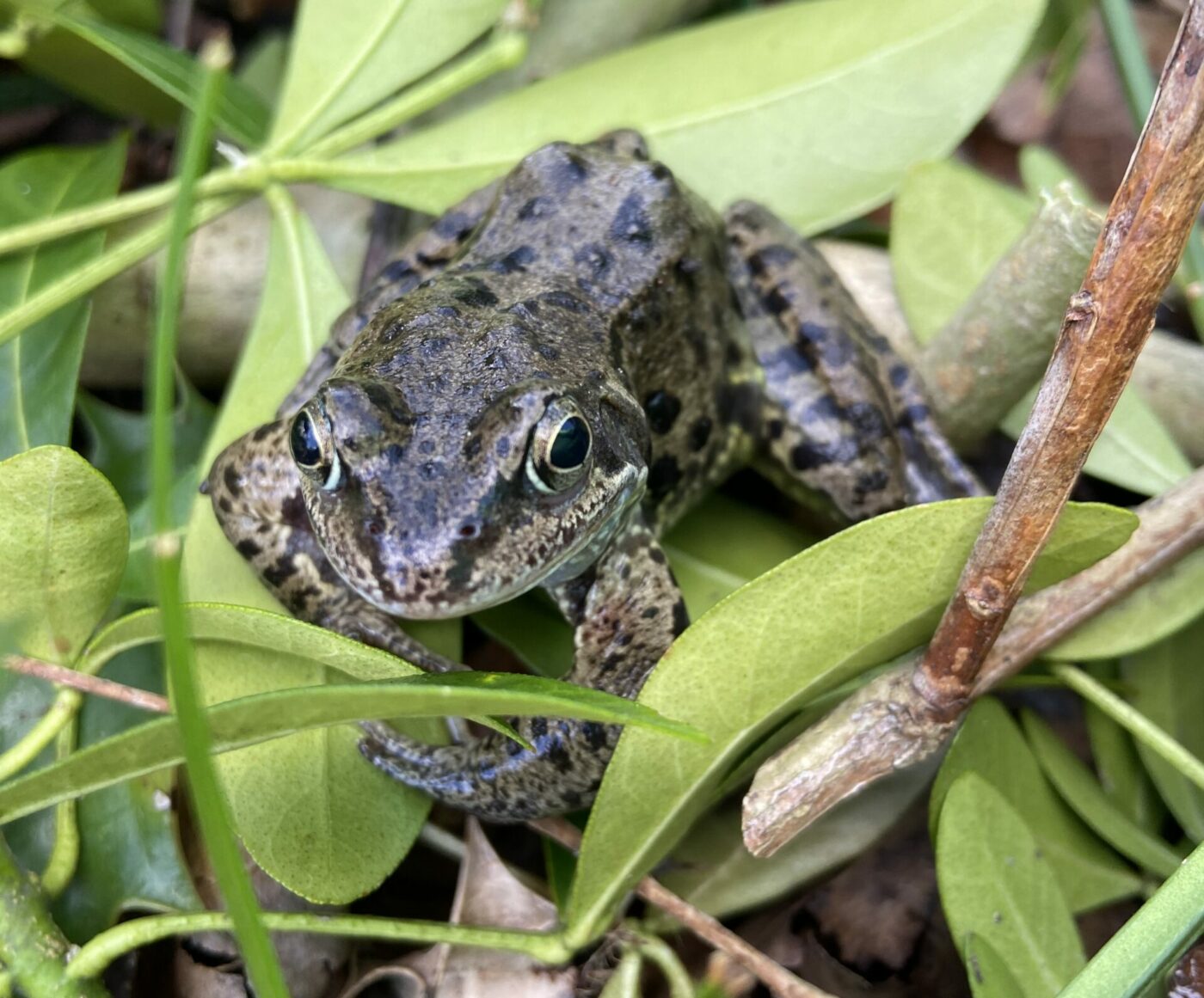
If you feel you have a problem with slugs and snails, the best thing you can do is leave fallen leaves because it is home to their natural predators. Beetles, centipedes, frogs, toads, slow worms, hedgehogs, you name it – all of these animals hide and live under damp, protective fallen leaves for most of the year. Feeding on, you guessed it, slugs, snails and other nibbly insects. Remove it and you remove the predators, and off slugs and snails will slide to what’s left, your plants.
3) A natural mulch making your life easier!
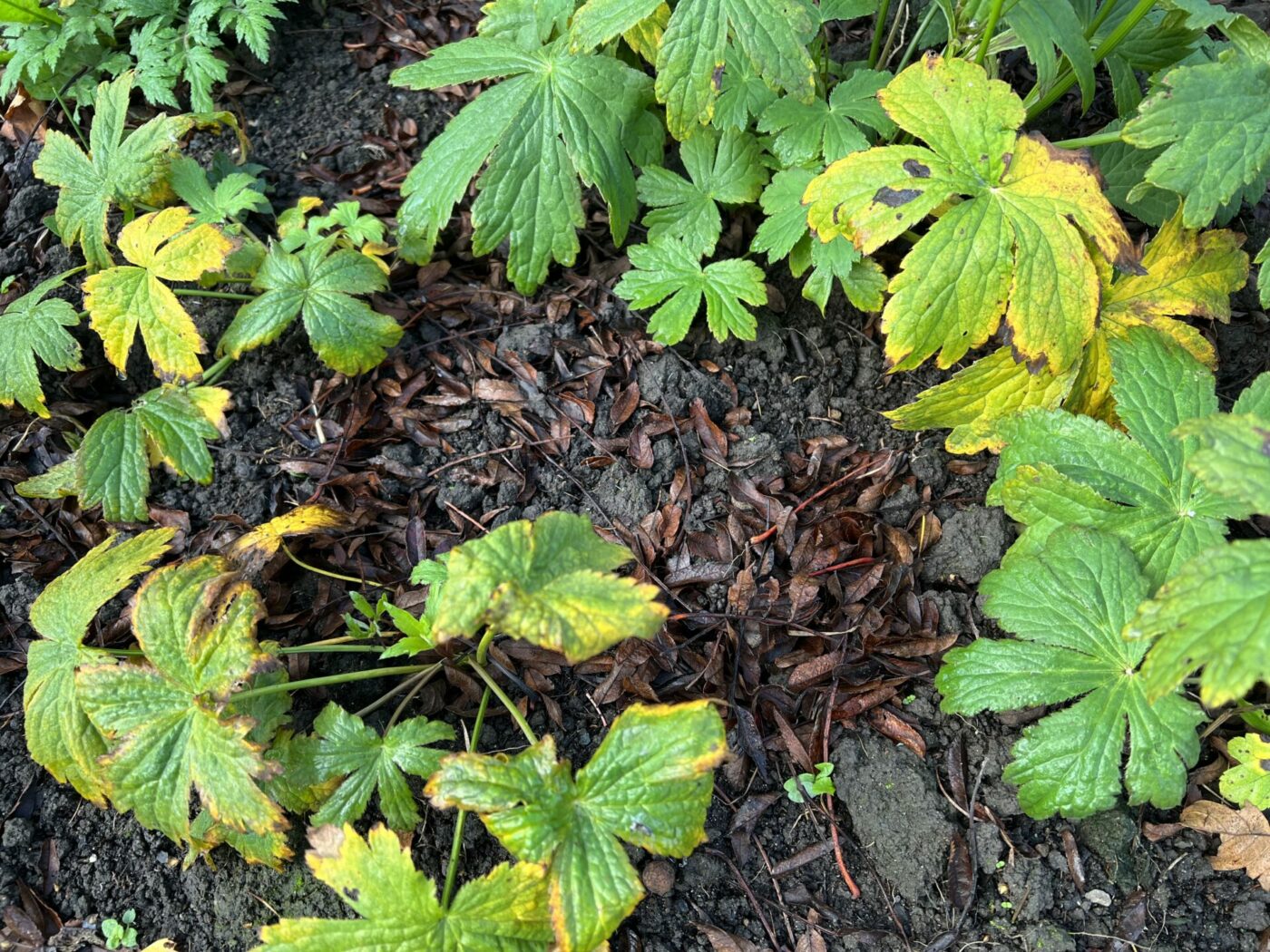
Gardening advice of the past tells us to remove leaves in autumn and then mulch around plants in spring with compost. Why? Leaves are a natural mulch, that break down and are pulled into the soil by worms and other soil dwelling life. People worry that the leaves may smother smaller plants but they generally work their way around plants as autumn progresses, as happens naturally in the wild (shown above). Many perennials will naturally go dormant in winter anyway, and growing through fallen leaves is no different to growing back through soil. In fact, the leaves offer a layer of protection from the winter elements. If you have smaller evergreen plants you can brush the leaves off or, personally, I would move them to a more appropriate place or replace them with something more tolerant. Ferns for instance can be evergreen but are also extremely shade tolerant, shade loving plants like this won’t bat a leaf about a thin layer of leaves in winter.
4) Fallen leaves don’t last long in a healthy ecosystem
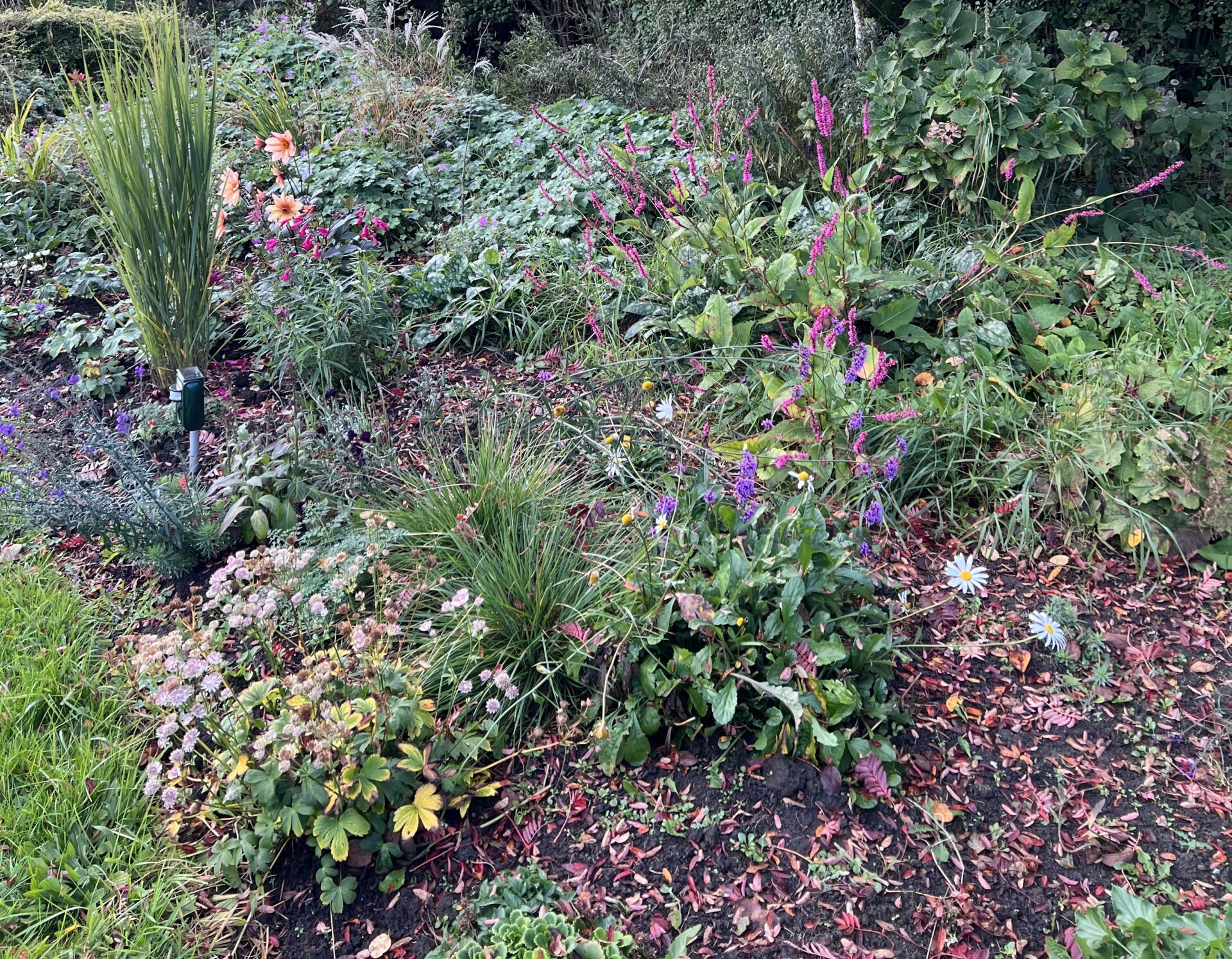
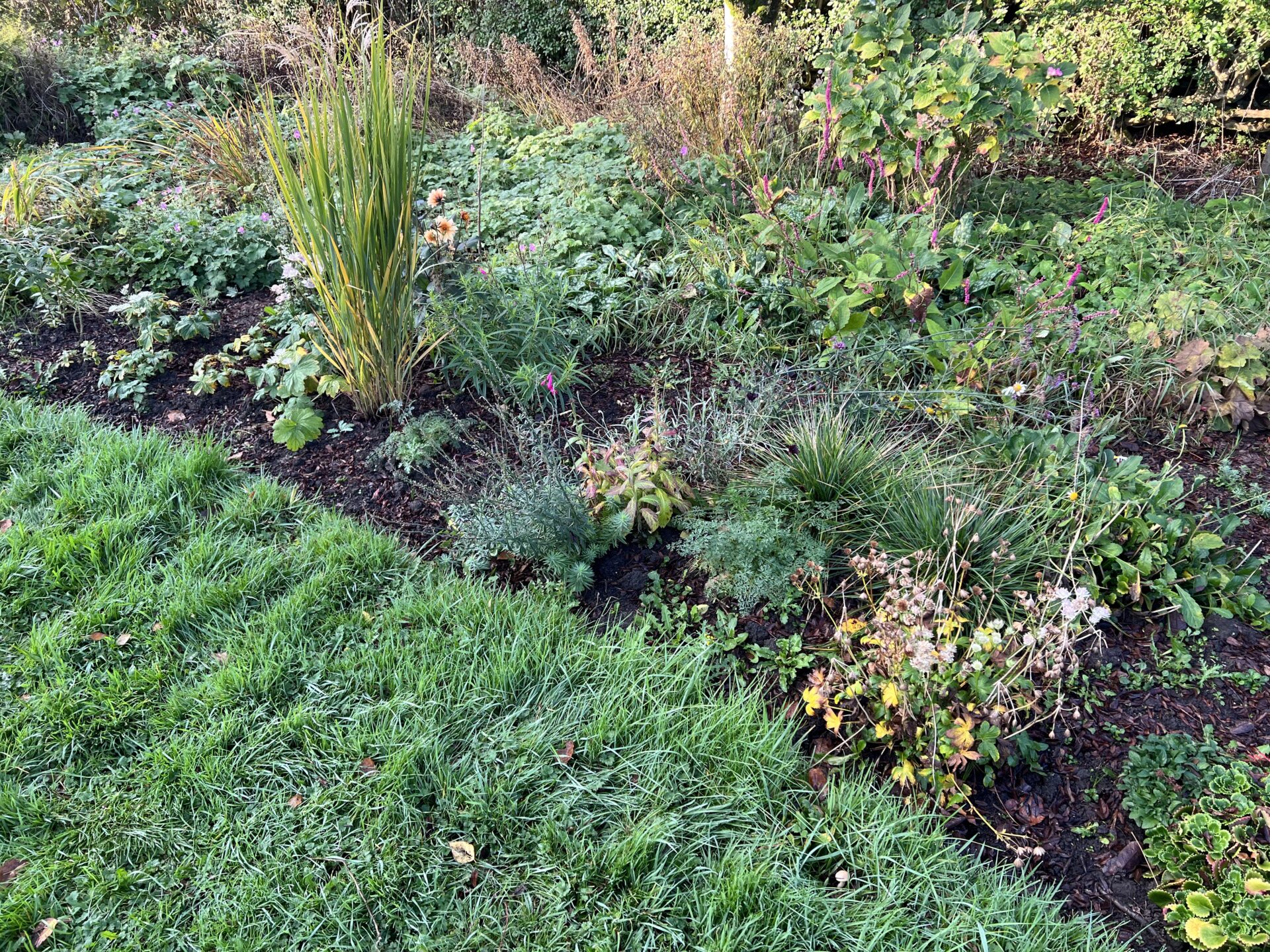
Most fallen leaves will blow around plants and begin decomposing quickly, especially with a healthy ecosystem that includes slugs and snails. Above you can see how the leaves that fell from a very large rowan, birch and an amelanchier have virtually all been absorbed into the soil within a month or so. It’s true that some trees like oak and beech have tougher leaves that take much longer to decompose. However, these make fantastic habitats for beneficial animals like frogs, toads, slow worms and hedgehogs. It just requires larger plants like big ferns that the leaves will fall around and not on.
5) Fallen leaves are beautiful, good for wildlife and reduce maintenance
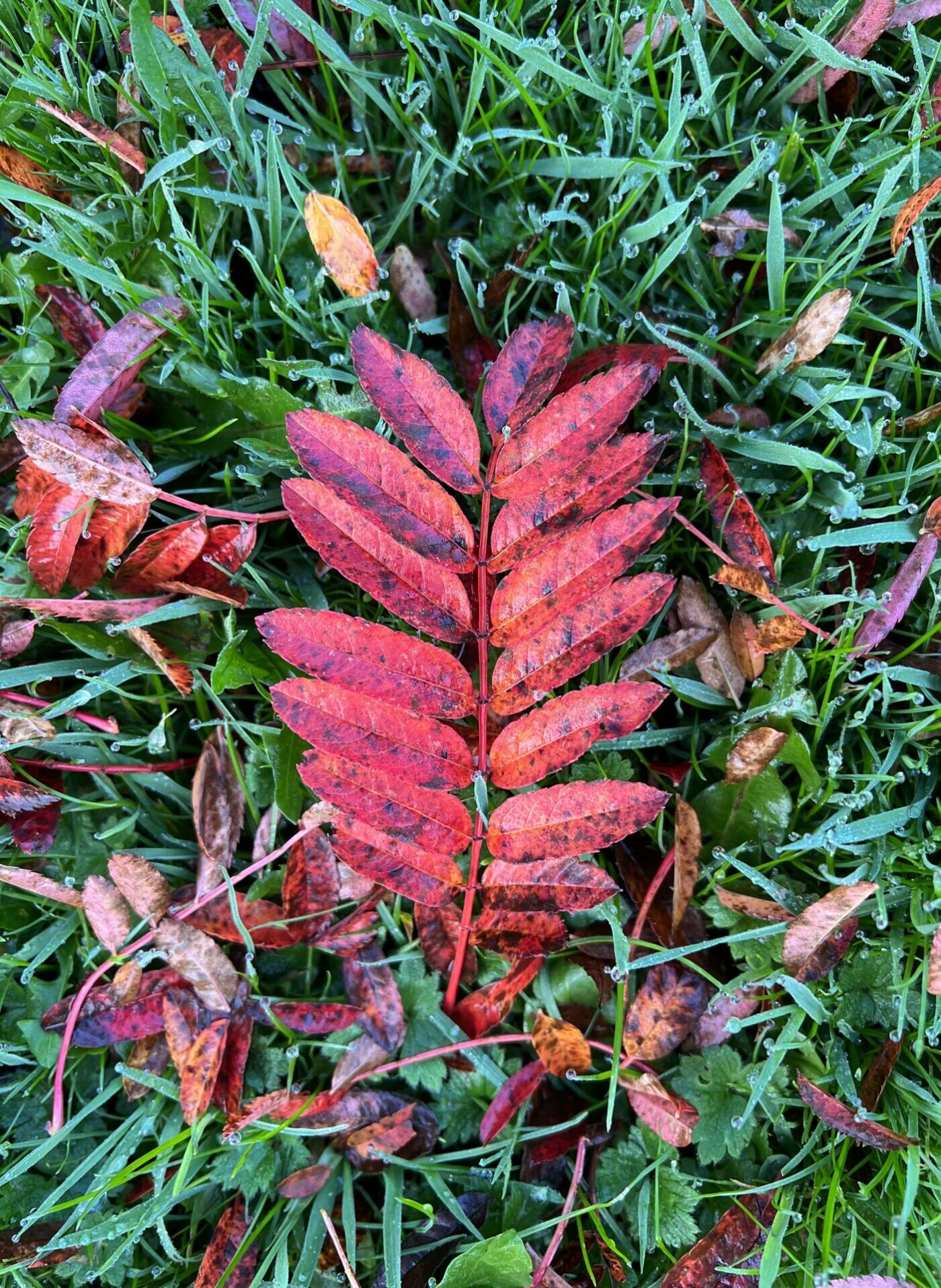
Look again at fallen leaves. Remove from paths and lawns but keep them around your plants. It might mean you need to adjust what you plant slightly, but this is all part of becoming a better gardener. Creating a beautiful garden for you, that’s easier to care for and brilliant for the planet.
